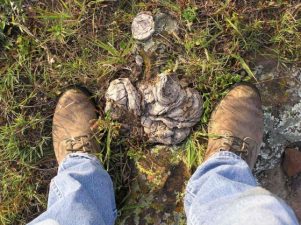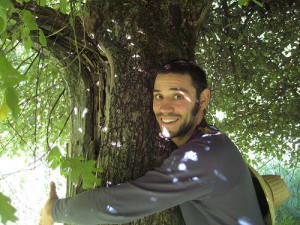
Making alcohol from sugars is easy; maybe the third oldest profession in the world. Making butanol from zebra droppings is another story.
Processors have made ethanol from cornstarch and sugar for decades, but using food products to make biofuel raises demand for staple commodities like corn and seed oils with disastrous impact to the food chain.
So let’s try again, back things up a step. Start with cellulose, not sugar. Add some enzymes that convert the cellulose into sugar. Next ferment the sugar into alcohol. Then distill the alcohol into fuel. Four simple steps and we’re juicing our cars with sawdust and coconut shells instead of Middle East oil. Scientists know how to turn plants into fuel, but doing it profitably is another thing: Cellulose is the problem.
Found in the walls of plant cells, cellulose is the most abundant naturally occurring organic molecule on the planet. These tough fibers, indigestible to humans, protect plants from predators. And they’re hard to break down.
Some animals have evolved elegant ways to do the chemistry. Cow, camel and goat guts host microbes which produce cellulose-chomping enzymes to get the job done. Called cellulase, these enzymes can be lab-produced, but they aren’t cheap: processors often rely on government subsidies to offset costs. For an academic researcher, trying to convert cellulose into fuel, in a lab, on a budget, hasn’t been easy.
It’s all happening at the zoo.
Maybe professor of microbiology, Dr. David A. Mullin is a Simon & Garfunkel fan, or it’s simply serendipitous that his Tulane University lab is near New Orleans’ Audubon Zoo.
His exploration to discover a microbe that could produce a biofuel straight from cellulose began inside the animal cages. Braving odors and muck, he and his grad students collected manure from all sorts of exotic vegetarians. Then the team cultured 40 different bacteria colonies from the Audubon droppings. When fed cellulose, over a dozen of these strains made butanol. Holy cow!
Butanol, with four carbon atoms, has twice the kick of ethanol and only slightly less energy-potential than gasoline. It can be used straight-up (needs no blending with traditional fossil fuels), and can be transported via existing oil/gas infrastructure (tanker trucks, ships and pipelines).
Due to these commercially-friendly characteristics, this class of biofuel holds potential to lead the pack of alternative fuels.
Mullin’s team experimented to find butanol-producing strains that could work in open air (not in vacuum-sealed animal bellies) and at temperatures easily replicated in a lab.
Bacteria from African Zebra droppings earned their stripes by hitting all the targets. His tests now focus on TU-103, the name of the magical zebra-poop microbe. Experiments combine TU-103 with a variety of high-fiber meals, and measure chemical output. Mullin has demonstrated that, in addition to butanol, TU-103 converts cellulose into acetone and hydrogen (both with commercial value) and carbon dioxide.
OK, so not completely net-zero, but very close. The team is now working to minimize the time for fermentation and demonstrate that the enzyme can consistently convert an array of biomass waste feedstock.
Environmental push-back against biofuel targets competition with food sources; stresses on water supply; and negative impact to biodiversity since it encourages farmers to dedicate large tracts of arable land to single-crop production.
“We don’t want to create new monocultures,” said Sheila Karpf, policy analyst for the Environmental Working Group, a nonprofit advocacy group in Washington.
Biofuels created from industrial and agricultural bio-waste neatly sidesteps these issues: this Green Prophet advises.
Image via loveisnotabvictorymarch



Zebra training school in New Mexico? Remarkable!!!
Hey, if you want some zebra poop, show up at the barn with yr boots and gloves. It’s time for spring cleaning!